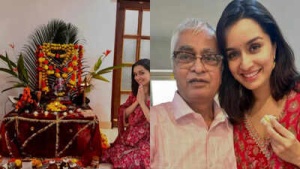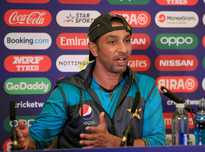Bollywood music has long been a source of inspiration for Hollywood, but few influences have been as unexpected and vibrant. Indian songs have been incorporated into some of the most memorable scenes in movies, from Mohammed Rafi's upbeat Jaan Pehchan Ho, which sets the indie mood in Ghost World, to AR Rahman's vivacious Chaiyya Chaiyya, which drives the opening of Spike Lee's Inside Man.
Over the years, Bollywood songs have slipped into Hollywood soundtracks in ways that highlight cultural crossover, universal emotion, and the global power of music.
Jaan Pehchan Ho — Ghost WorldAt the film's opening credits, the vibrant Mohammed Rafi number from Gumnaam sets the tone, playing on a TV as the protagonist dances, embodying youthful defiance and indie energy.
Chamma Chamma — Moulin Rouge!This high-energy Bollywood track from China Gate, composed by Anu Malik, appears as Hindi Sad Diamonds in Baz Luhrmann’s musical fantasy. It's performed cabaret-style by Nini Legs in the Air—melding Bollywood flamboyance with Moulin Rouge’s theatrical aesthetic.
Bombay Theme (AR Rahman) — Lord of WarRahman’s haunting instrumental from Bombay underscores a dramatic montage in this Nicolas Cage crime drama, showcasing its power to transcend cultural boundaries and tether exotic beauty to moral weight.
Chaiyya Chaiyya — Inside ManShah Rukh Khan's iconic song from Dil Se graces both the opening and closing credits of Spike Lee’s heist thriller, offering a striking cultural contrast and global musical appeal.
Urvasi Urvasi — LionAR Rahman's lively track reappears in Lion during a playful walk-and-talk with Dev Patel’s character. Originally from Kadhalan, it beautifully infuses the Australian-Irish drama with Indian cultural flavor.
Mera Joota Hai Japani — DeadpoolThe classic from Awaara, sung by Mukesh, pops up comically while Deadpool chats with his cab driver. It's a delightful, unexpected nod to Bollywood’s golden era.
Mundian To Bach Ke (Punjabi MC) — The Dictator TrailerThis Punjabi club anthem provides the energetic backdrop for the promotional trailer of Sacha Baron Cohen's comedy, signaling cultural playfulness and irreverence.
Multiple Songs — Eternal Sunshine of the Spotless MindThe emotional power of Mohammad Rafi’s tracks—Tere Sang Pyar Main Nahin Todna, Mera Mann Tera Pyasa, and Wada Na Tod—underscores a creative cue: memories resurfacing as characters confront love, loss, and erasure.
Chalka Chalka Re, Swasame Swasame, Mujhe Rang De — The Accidental HusbandThese Bollywood songs, especially Chalka Chalka Re from Saathiya, open the film, offering a South Asian–flavored musical motif that aligns with the romantic-comedy’s playful tone.
Lehron Ki Tarah Yaadein — Shaun of the DeadKishore Kumar’s nostalgic track plays in the background as chaos unfolds, humorously contrasting bland familiarity with undead absurdity.
Cultural bridgebuilding
When Chaiyya Chaiyya opened Inside Man, audiences unfamiliar with Bollywood were suddenly swept up in its energy. Spike Lee later explained that he chose the track because its rhythm felt universal and instantly captivating. For many Western viewers, this moment became their first introduction to AR Rahman’s brilliance—and, in turn, to the world of Bollywood music.
Bollywood in the Indie and cult space
Movies like Ghost World and Eternal Sunshine of the Spotless Mind brought Mohammed Rafi’s timeless songs to a new generation of indie audiences in the West. These selections weren’t accidental—directors such as Terry Zwigoff and Michel Gondry intentionally drew on the dreamy, retro charm of Bollywood playback music to explore themes of nostalgia, memory, and identity.
AR Rahman as a global force
AR Rahman has become the most recurring Bollywood presence in Hollywood. From Bombay Theme in Lord of War to Urvasi Urvasi in Lion, his music quickly became a signature for authentic Indian soundscapes. This journey eventually led to his Oscar-winning triumph with Slumdog Millionaire, a milestone that firmly established Bollywood’s musical credibility on the global stage.
Humor and irony
When Mera Joota Hai Japani popped up in Deadpool, the humor worked on multiple levels. For Western audiences, it was quirky and exotic; for South Asian viewers, it was an inside joke—Deadpool bantering to a track that once symbolized Nehruvian patriotism. It showed how Bollywood songs could carry double meanings across cultures.
Global club culture
Another layer is Punjabi MC's Mundian To Bach Ke in the Dictator trailer; despite not being strictly Bollywood, its bhangra origins give it an Indian sound. With Jay-Z's remix, this song had already gone viral in Europe and America by the early 2000s, demonstrating how South Asian beats had completely permeated Western popular culture.
Bollywood songs as emotional shortcuts
In Eternal Sunshine…, Rafi’s Wada Na Tod wasn’t just background music—it functioned like an emotional cue, mirroring Joel’s fragmented memories. These insertions gave Western audiences an emotive texture they couldn’t find in their own pop catalogue.
Representation for the diaspora
For millions in the Indian diaspora, seeing Bollywood songs in Hollywood wasn’t just a novelty—it was recognition. Dev Patel listening to Rahman in Lion mirrored the lived reality of second-generation kids who grew up with both cultures in their headphones.
Influence on later collaborations
After Moulin Rouge! repurposed Chamma Chamma, Baz Luhrmann went on to cast Indian actress Mallika Sherawat in The Myth (2005).
Rahman’s growing Western presence led to collaborations with Andrew Lloyd Webber (Bombay Dreams) and Danny Boyle (Slumdog Millionaire).
Even Marvel (Ms Marvel series, 2022) leaned heavily on Bollywood and Pakistani pop songs, a legacy of these earlier experiments.
Concluding note
Bollywood's entry into Hollywood soundtracks is more than just a string of oddball musical appearances; it's a testament to how the melodies of Indian cinema have an impact that extends well beyond its boundaries. These songs have become cultural bridges, giving Western audiences a taste of India's musical heartbeat, whether it's Rahman's soaring themes, Rafi's nostalgia for the golden age, or the bhangra beats that upended international club culture.
Select The Times of India as your preferred source on Google Search.










 Ganesh Chaturthi 2025: A look back at Shraddha Kapoor's endearing family celebrations - See Pics
Ganesh Chaturthi 2025: A look back at Shraddha Kapoor's endearing family celebrations - See Pics
 ICC Test Rankings: Pant Hits Career High, Bumrah Stays Top; Root Still King
ICC Test Rankings: Pant Hits Career High, Bumrah Stays Top; Root Still King
 Azhar Mahmood Tapped as Interim Test Coach for Pakistan After Gillespie Exit
Azhar Mahmood Tapped as Interim Test Coach for Pakistan After Gillespie Exit
 Gavaskar Calls for Kuldeep Yadav Inclusion, Middle-Order Assessment After India's Test Loss to England
Gavaskar Calls for Kuldeep Yadav Inclusion, Middle-Order Assessment After India's Test Loss to England
 Iyer's Test Debut Faces Delay Amidst Competition, Says Cricket Expert
Iyer's Test Debut Faces Delay Amidst Competition, Says Cricket Expert
 India's First Dengue Vaccine Nears Approval as Phase 3 Trials Approach Finish Line
India's First Dengue Vaccine Nears Approval as Phase 3 Trials Approach Finish Line
 Vidit Gujrathi Defends Family's Medical Professions After Online Criticism: Chess Star Slams 'LiverDoc' for Disrespect
Vidit Gujrathi Defends Family's Medical Professions After Online Criticism: Chess Star Slams 'LiverDoc' for Disrespect
 Prithvi Shaw Acknowledges Career Downturn: Faulty Choices and Lost Focus Derailed Cricket Dreams
Prithvi Shaw Acknowledges Career Downturn: Faulty Choices and Lost Focus Derailed Cricket Dreams
 Wimbledon Eyes Indian Market: Leveraging Cricket Ties to Ace Expansion Strategy
Wimbledon Eyes Indian Market: Leveraging Cricket Ties to Ace Expansion Strategy
 Rishabh Pant's Fearless Batting Redefining Test Cricket, Says Greg Chappell
Rishabh Pant's Fearless Batting Redefining Test Cricket, Says Greg Chappell